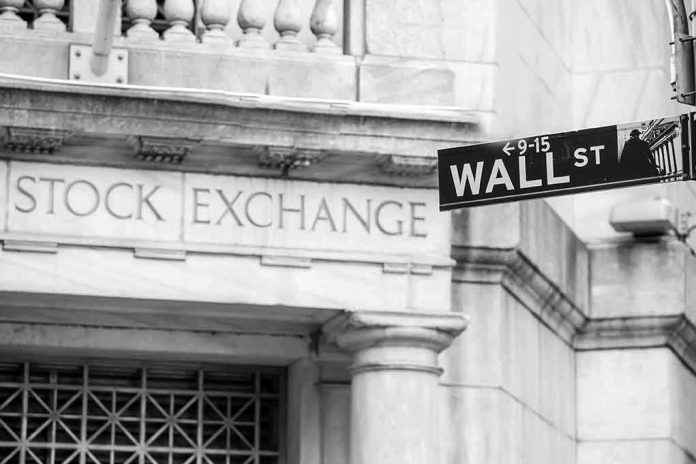
A prominent Wall Street executive is warning Americans of an imminent 1929-style market crash that could devastate retirement accounts and savings, echoing the catastrophic collapse that preceded the Great Depression.
Story Snapshot
- Wall Street executive predicts massive short-term gains followed by devastating 1929-style crash
- Warning comes as markets show dangerous similarities to pre-Depression bubble conditions
- Financial experts emphasize investor psychology poses greater threat than market forces themselves
- Behavioral mistakes and emotional decision-making identified as primary wealth destroyers
Executive Issues Stark Depression-Era Warning
A top Wall Street executive has issued a chilling warning about an approaching market crash reminiscent of the 1929 collapse that triggered the Great Depression. The executive predicts massive short-term gains will precede a devastating market correction, creating a dangerous trap for unsuspecting investors. This warning comes as market conditions increasingly mirror the speculative bubble that preceded Black Tuesday, when overconfidence and irrational exuberance led to catastrophic losses for millions of Americans.
Investor Psychology Identified as Greatest Market Risk
Leading financial experts are emphasizing that the biggest threat to investor wealth isn’t market volatility or economic shocks, but investors’ own behavioral mistakes and psychological biases. Warren Buffett and other legendary investors consistently warn that emotional decision-making, panic selling, and herd mentality destroy more wealth than any external market force. This insight becomes particularly relevant as retail investors increasingly rely on social media and rapid trading platforms that amplify emotional responses and poor decision-making.
Historical Patterns Signal Dangerous Market Conditions
Current market conditions bear striking resemblances to previous catastrophic crashes, including the dot-com bubble of 2000, the 2008 financial crisis, and the 1929 collapse. Each crisis was preceded by periods of overconfidence, speculation, and dismissal of risk factors. The proliferation of algorithmic trading and increased retail investor participation has created additional volatility that amplifies behavioral risks. Market experts note that panic selling and loss aversion during these downturns consistently deepened corrections beyond what economic fundamentals would justify.
Financial advisors are increasingly incorporating behavioral coaching into their practices, recognizing that traditional risk management fails when investors make emotional decisions. The rise of behavioral economics research confirms that cognitive biases like overconfidence and herd behavior are major drivers of poor investment outcomes. Technology solutions, including robo-advisors with built-in behavioral controls, are being deployed to help investors avoid impulsive decisions that historically destroy long-term wealth accumulation.
Protecting Wealth Through Disciplined Investing
Investment legends consistently emphasize that discipline, patience, and rationality are more important than market forecasting for long-term success. Peter Bernstein’s warning that “the biggest risk is not knowing what you are doing” resonates strongly with conservatives who value self-reliance and personal responsibility. Seth Klarman’s focus on risk management over return maximization aligns with conservative principles of prudent financial stewardship and protecting family wealth across generations.
The consensus among leading investors and academics is that self-control represents the most controllable and critical risk factor in investment success. This perspective empowers individual investors to take responsibility for their financial outcomes rather than blaming external forces. As market volatility continues in 2025, the ability to maintain rational decision-making and avoid emotional reactions will likely determine which investors preserve and grow their wealth versus those who suffer devastating losses.
Sources:
Warren Buffett Quotes on Investing Success
Warren Buffett Investment Strategies and Behavioral Pitfalls
Risk Management and Behavioral Finance Principles







